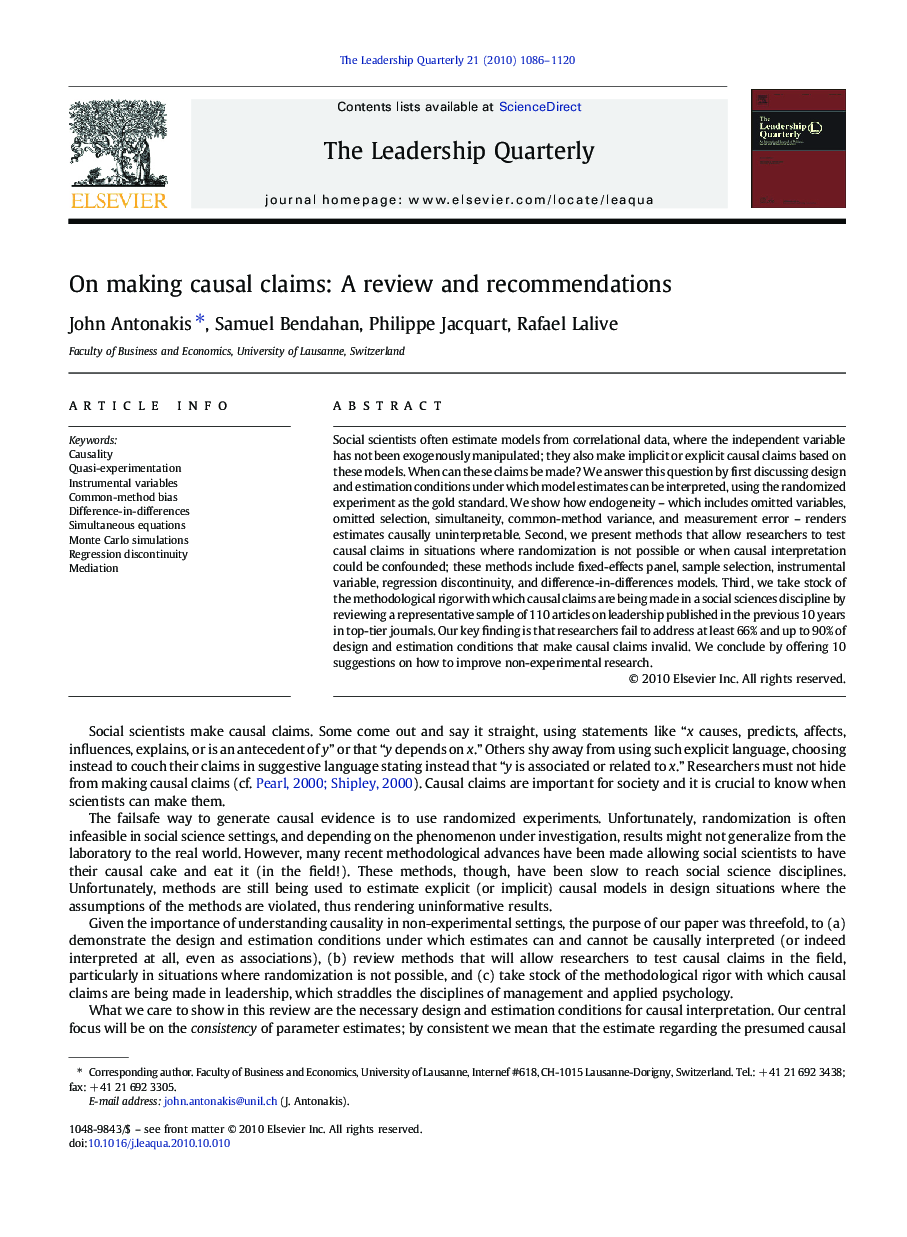| Article ID | Journal | Published Year | Pages | File Type |
|---|---|---|---|---|
| 888151 | The Leadership Quarterly | 2010 | 35 Pages |
Social scientists often estimate models from correlational data, where the independent variable has not been exogenously manipulated; they also make implicit or explicit causal claims based on these models. When can these claims be made? We answer this question by first discussing design and estimation conditions under which model estimates can be interpreted, using the randomized experiment as the gold standard. We show how endogeneity – which includes omitted variables, omitted selection, simultaneity, common-method variance, and measurement error – renders estimates causally uninterpretable. Second, we present methods that allow researchers to test causal claims in situations where randomization is not possible or when causal interpretation could be confounded; these methods include fixed-effects panel, sample selection, instrumental variable, regression discontinuity, and difference-in-differences models. Third, we take stock of the methodological rigor with which causal claims are being made in a social sciences discipline by reviewing a representative sample of 110 articles on leadership published in the previous 10 years in top-tier journals. Our key finding is that researchers fail to address at least 66% and up to 90% of design and estimation conditions that make causal claims invalid. We conclude by offering 10 suggestions on how to improve non-experimental research.
